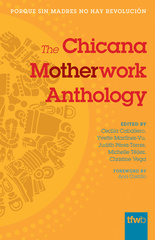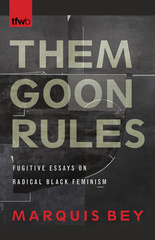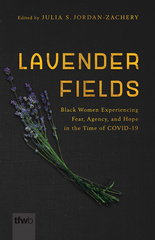
340 pages, 6 x 9
1 b&w illustration, 30 color illustrations
Paperback
Release Date:07 Jun 2022
ISBN:9780816544080
A Love Letter to This Bridge Called My Back
SERIES:
The Feminist Wire Books
The University of Arizona Press
In 1981, Chicana feminist intellectuals Cherríe Moraga and Gloria Anzaldúa published what would become a touchstone work for generations of feminist women of color—the seminal This Bridge Called My Back: Writings by Radical Women of Color. To celebrate and honor this important work, editors gloria j. wilson, Joni B. Acuff, and Amelia M. Kraehe offer new generations A Love Letter to This Bridge Called My Back.
In A Love Letter, creators illuminate, question, and respond to current politics, progressive struggles, transformations, acts of resistance, and solidarity, while also offering readers a space for renewal and healing. The central theme of the original Bridge is honored, exposing the lived realities of women of color at the intersections of race, class, gender, ethnicity, and sexuality, advancing those early conversations on what it means to be Third World feminist conscious.
A Love Letter recognizes the challenges faced by women of color in a twenty-first-century world of climate and economic crises, increasing gun violence, and ever-changing social media constructs for women of color. It also retains the clarion call Bridge set in motion, as Moraga wrote: “A theory in the flesh means one where the physical realities of our lives—our skin color, the land or concrete we grew up on, our sexual longing—all fuse to create a politic born of necessity.”
In A Love Letter, creators illuminate, question, and respond to current politics, progressive struggles, transformations, acts of resistance, and solidarity, while also offering readers a space for renewal and healing. The central theme of the original Bridge is honored, exposing the lived realities of women of color at the intersections of race, class, gender, ethnicity, and sexuality, advancing those early conversations on what it means to be Third World feminist conscious.
A Love Letter recognizes the challenges faced by women of color in a twenty-first-century world of climate and economic crises, increasing gun violence, and ever-changing social media constructs for women of color. It also retains the clarion call Bridge set in motion, as Moraga wrote: “A theory in the flesh means one where the physical realities of our lives—our skin color, the land or concrete we grew up on, our sexual longing—all fuse to create a politic born of necessity.”
Forty years since the publication of the influential book This Bridge Called My Back, the text continues to inspire so many women of color in the Western world. This collection of poetry, art, call-outs, and personal musings demonstrates why the text is still relevant today.’―Emily S. Lee, editor of Race as Phenomena: Between Phenomenology and Philosophy of Race
gloria j. wilson is co-founder and co-director of Racial Justice Studio and an assistant professor in the School of Art at the University of Arizona. Her research centers cultural studies and Black studies engagements with theories of racial formations, anti-racism, and critical arts-based praxis.
Joni B. Acuff is an associate professor in the Department of Arts Administration, Education, and Policy at The Ohio State University. Acuff utilizes frameworks such as critical race theory, critical multiculturalism, Black feminist theory, and Afrofuturism to develop and disseminate pedagogical and curriculum strategies that activate critical race knowledge in art education.
Amelia M. Kraehe is associate vice president for equity in the arts, co-founder and co-director of Racial Justice Studio, and an associate professor in the School of Art at the University of Arizona. She researches and teaches about intersectional anti-racism, the arts, and creative agency. She is co-author of Race and Art Education and co-editor of Pedagogies in the Flesh: Case Studies on the Embodiment of Sociocultural Differences in Education and The Palgrave Handbook on Race and the Arts in Education.
Joni B. Acuff is an associate professor in the Department of Arts Administration, Education, and Policy at The Ohio State University. Acuff utilizes frameworks such as critical race theory, critical multiculturalism, Black feminist theory, and Afrofuturism to develop and disseminate pedagogical and curriculum strategies that activate critical race knowledge in art education.
Amelia M. Kraehe is associate vice president for equity in the arts, co-founder and co-director of Racial Justice Studio, and an associate professor in the School of Art at the University of Arizona. She researches and teaches about intersectional anti-racism, the arts, and creative agency. She is co-author of Race and Art Education and co-editor of Pedagogies in the Flesh: Case Studies on the Embodiment of Sociocultural Differences in Education and The Palgrave Handbook on Race and the Arts in Education.













